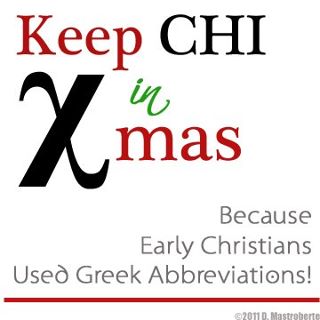
I didn’t believe in Santa Claus as a child, and I raised my own children without any focus or emphasis upon Santa either. We weren’t virulently anti-Santa. It was more that he simply didn’t come up. We didn’t tell Santa stories or sing Santa songs. There weren’t gifts under the tree from him. Conversely, we never sat our children down to say, “There is no Santa. Don’t believe that nonsense and part of the mission of your young life is to disabuse your little friends of the foolish notion that Santa exists!” Santa Claus was more in the category of adiaphora—things indifferent.
Today, December 6, is St. Nicholas Day, the day when Christians celebrate and give thanks for Nicholas (270-343), Bishop of Myra. (For more info on Nicholas see http://www.stnicholascenter.org/pages/who-is-st-nicholas/). Of course, marking and celebrating Christian saints isn’t exactly part of typical Reformed piety. But to the Dutch, Sinterklaas was just too beloved to let religious scruples get in the way. In recent years, Nicholas has become sort of fashionable. Could we call it a comeback?
Borrowing from H. Richard Niebuhr’s classic Christ and Culture, it puzzles me that some inventive sort hasn’t written Christ and Christmas. Even though one of my life projects has been to undermine the nearly divinely-instituted character of HRN’s categories (against, above, transforming, etc.), the holiday brings about all of the same issues and questions into play. Using H. Richard’s compass, as far culture and Christmas, I have a proclivity to be “against” both, even though as a good Reformed person, I know my correct answer should be “transforming.”
Should Christians be upset by the use of Xmas, or make a big effort to keep “Christ in Christmas”? I can’t quite summon the energy. Store clerks that greet me “Happy Holidays!” or windows that display “Seasons Greetings!” instead of “Merry Christmas!” don’t bother me. The outrage this stirs in some Christians feels to me like another gasp in the long moan that is the end of Christendom. How should Christians live in this season? Aren’t there times when you just want to give up on Christmas—cede it fully to secularity and go find another time for Christians to celebrate the incarnation? Does Santa detract from the true focus of Christmas? And don’t we sound like the Grinch when we share questions and reservations like this?
And so back to Nicholas. For Christians, is he preferable to Santa Claus? I want to say “yes.” Nicholas isn’t a ploy to supercharge our boundless consumerist impulses. Nicholas is not an omniscient one who knows if you’ve been naughty or nice. Nicholas is a dead historical figure, so children never need to be told he isn’t real, thereby avoiding permanent damage to their ability ever to hold faith of any sort. (Does that really happen?) Nicholas is a reminder and role model, an example of Christian generosity. He inspires us and shows us how to live, exactly what a saint should do. Celebrating St. Nicholas Day—for example, families who exchange small gifts today, or some who even do all their gift-giving today in order to allow Christmas to be a day for worship and focusing on Christ—this is a subtle Christian witness, maybe even a transformative effort in this season. That’s the best case scenario.
But my Reformed perspective, prone as we are to take a jaundiced view of even our own motivations, wonders if Nicholas isn’t just an easy way to do an end run around our Santa aversion. Maybe we’ve secretly or sub-consciously found Santa appealing but couldn’t really own our attraction. Nicholas makes Santa okay. All the fun. None of the guilt! If I were a psychotherapist, I think I could find a clear and direct parallel between St. Paul’s flip from fanatical Pharisee to nigh-unto-libertine Christian and the recent trend for anti-Santa Christians to become St. Nicholas devotees.
Or probably, in another typically Reformed move, I’m simply overthinking this. For the foreseeable future anyway, I’ll continue to enjoy St. Nicholas Day, ignore Santa, and keep looking for authentic ways to celebrate Christ’s incarnation.

